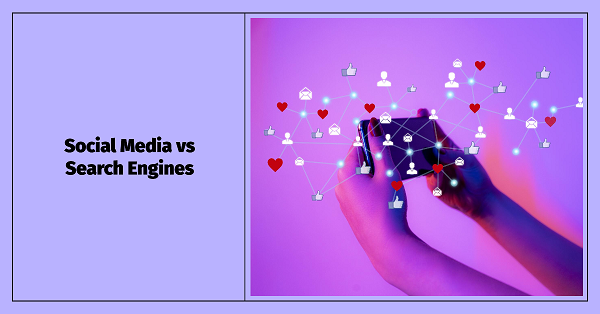Social Media Ads V/s Search Engine Ads
Social media ads and search engine ads are two distinct types of digital advertising, each with its own set of advantages and considerations. Here’s a comparison of the two:
Social Media Ads:
- Targeting Options: Social media platforms offer highly granular targeting options based on demographics, interests, behaviors, and connections. This allows advertisers to reach specific audiences with precision.
- Visual and Creative Opportunities: Social media ads are highly visual, allowing advertisers to use images, videos, carousels, and other creative formats to engage users. This makes social media ads particularly effective for brand awareness and storytelling.
- Engagement and Interaction: Social media ads often encourage engagement and interaction from users through likes, comments, shares, and clicks. This can help build relationships with customers and foster brand loyalty.
- Native Advertising: Social media ads seamlessly blend into users’ feeds, appearing alongside organic content. This native advertising approach can result in higher engagement rates compared to traditional display ads.
- Brand Awareness: Social media ads are effective for building brand awareness and reaching new audiences who may not be actively searching for products or services.
Search Engine Ads:
- Intent-Based Targeting: Search engine ads target users based on their search queries, allowing advertisers to reach audiences actively looking for specific products, services, or information. This makes search engine ads highly effective for capturing high-intent leads.
- Keyword Targeting: Search engine ads rely on keyword targeting, allowing advertisers to bid on relevant keywords related to their offerings. This ensures ads are displayed to users with specific search intents, increasing the likelihood of conversions.
- Highly Relevant Results: Search engine ads appear at the top of search engine results pages (SERPs), making them highly visible to users actively seeking information or solutions. This increases the relevance of ads and improves their effectiveness.
- Performance Tracking: Search engine advertising platforms provide detailed performance metrics, such as click-through rates, conversion rates, and return on investment (ROI). This allows advertisers to measure the effectiveness of their campaigns and optimize accordingly.
- Local Targeting: Search engine ads can target users based on their geographic location, making them effective for local businesses looking to reach customers in specific regions.
In summary, social media ads are effective for targeting specific demographics, building brand awareness, and fostering engagement, while search engine ads are ideal for capturing high-intent leads, targeting users based on search queries, and driving conversions. Depending on your advertising goals and target audience, you may choose to use one or both types of advertising to achieve your objectives.

